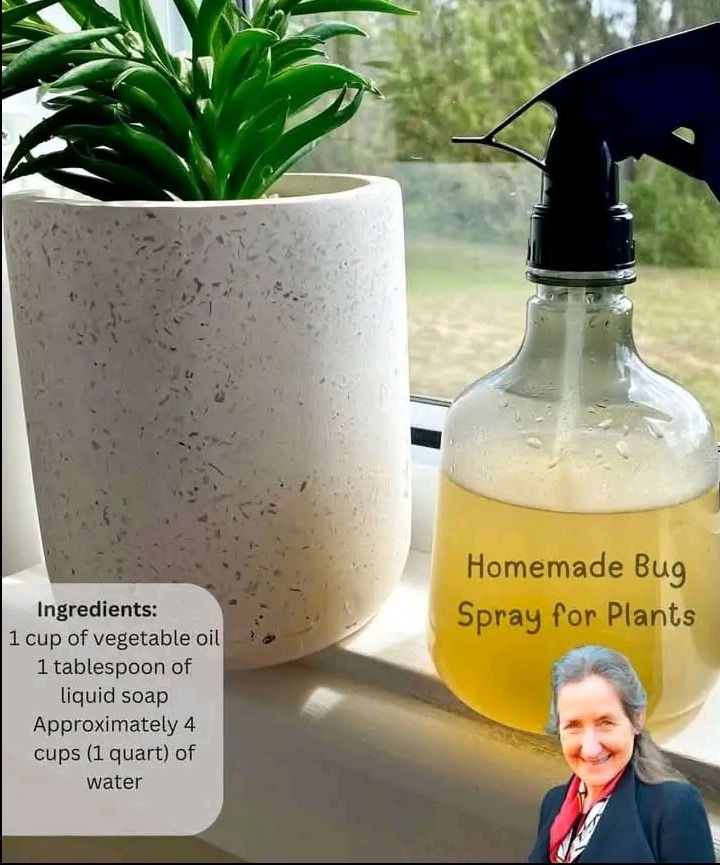ADVERTISEMENT
Mix: Combine all ingredients in a labeled spray bottle.
Spot Test First: This solution can be harsh on some plants. Always test a small leaf area.
Apply: Lightly spray the infested area and wipe insects off with a soft cloth if necessary.
Rinse: After 10–15 minutes, rinse the plant with clean water to reduce the chance of leaf burn.
Application & Maintenance Tips
Regular Inspection: Check leaves (especially undersides) weekly for signs of infestation. Early detection makes pest control easier.
Focus on Infested Areas: Spraying the whole plant when only a small section is affected isn’t always necessary, though a broader precautionary spray can help deter spread.
Rotate Recipes: Pests may build tolerance over time. Alternate between different sprays if an infestation persists.
Avoid Overwatering & Overfertilizing: Healthy plants are less susceptible to pests. Keep soil conditions optimal, and don’t encourage lush, weak growth that attracts insects.
Frequently Asked Questions (FAQ)
Is it safe to spray these on edible plants?
Generally, yes. Rinse produce thoroughly before consumption. If you use strong soap or essential oils, ensure they’re food-grade and safe for consumption if any residue remains.
Will these sprays harm beneficial insects?
In general, homemade sprays are less harmful than broad-spectrum chemical pesticides, but some beneficial bugs may still be affected. Use targeted spraying rather than drenching the entire garden.
How often should I reapply?
Typically, once or twice a week. If it rains (for outdoor plants) or pests are persistent, reapply sooner.
Can I store leftover solutions?
It’s best to make fresh batches every 1–2 weeks. Some ingredients (like garlic/onion juice) can spoil or lose potency.
What if pests persist?
Consider integrating other methods like sticky traps, introducing beneficial insects (e.g., ladybugs), or consulting a professional for severe infestations.
Conclusion
Homemade bug sprays using natural ingredients like soap, garlic, neem oil, and rubbing alcohol can help keep common plant pests at bay. By practicing routine inspections, applying the solutions consistently, and adjusting as needed, you can maintain a healthier environment for your plants—and do it in an eco-friendly, cost-effective way. Enjoy the peace of mind that comes with nurturing your garden or indoor greenery without harsh chemicals!
